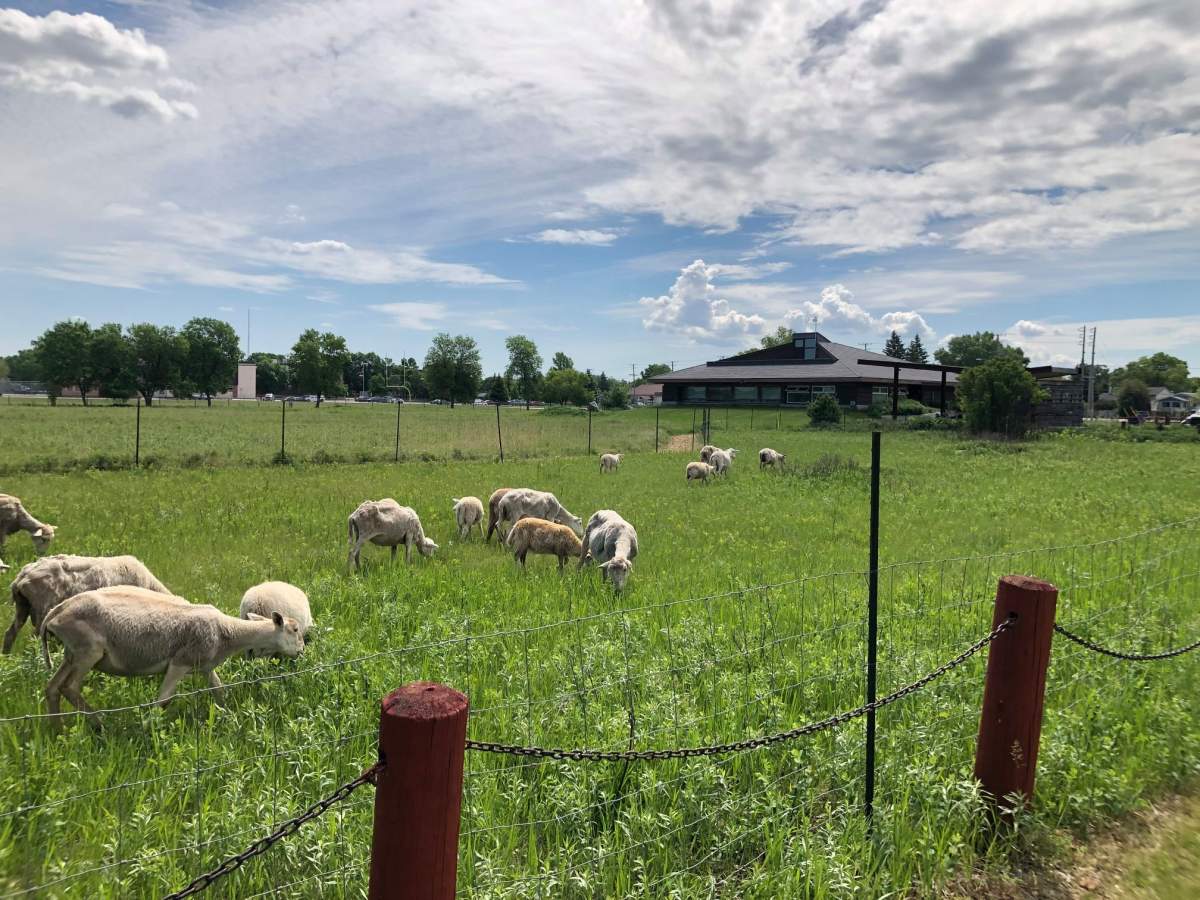A flock of woolly ‘vegetation managers’ is headed back to a St. James museum later this week.

The Living Prairie Museum announced Monday that its unofficial maintenance crew — a flock of hungry sheep — is coming back to the urban tallgrass prairie preserve for the second consecutive year.
The sheep — owned by a local farmer — are part of a pilot program testing the feasibility of grazing sheep to manage natural vegetation.
“There have been a number of studies showing that grazers can have a positive effect when maintaining natural areas and can be an effective tool for weed control,” said Rodney Penner, a city naturalist.
“We are very excited to have our woolly friends back to continue our innovation in managing vegetation in naturalized park spaces.”
The sheep will be on-site for around two weeks, living in a fenced enclosure at the 30-acre museum, and returning to their home farm on weekends.
The museum said that while museum visitors will be able to watch the sheep grazing, they won’t be allowed to pet, feed or directly interact with the animals for safety reasons.
In addition to the return of the sheep, a project is in the works to enhance the museum’s pathways and prevent visitors from making their own trails and affecting the site’s unique natural environment.

Get daily National news
Coun. Scott Gillingham (St. James) said on social media Friday that the $30,000 project — $10,000 of which comes from the his ward’s land dedication reserve fund — follows a similar project last year that gave visitors an improved self-guided trail experience.
“This project is going to help fund new infrastructure here… that really focuses this as a proper point of entry, beautifies the site and encourages people to use the site in a way that helps us conserve the prairie a little bit more,” said museum director Sarah Semmler.









Comments